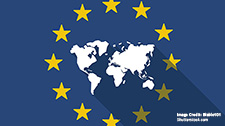Combating Human Trafficking: The Swedish Experience
Cemal Özkan
Human trafficking implies transnational transportation of people for purposes such as prostitution, slavery, begging or committing crimes on behalf of others. In Europe, trafficking has become an increasing problem over the last two decades because of ever more porous borders and the European integration, which has created a flexible milieu for organized criminals seeking to capitalize on the demand for purchasing sex.
Related Publications
-
Navigating the Indo-Pacific: How Australia and the EU Can Partner for Peace, Stability, and Prosperity
To navigate the choppy waters of the Indo-Pacific, the EU and Australia must be on the same wavelength regarding shared interests in rules, values, and an open and liberal economic […]
-
Europe, It’s Time to Wake Up on Research Security
Europe’s innovation scene is vibrant. It leads in automotive tech, green energy, and critical dual-use technologies. Yet, for all its brilliance, the EU is leaving its doors wide open. State-sponsored actors […]
-
Russia is a systemic threat and Europe must wake up to face it
While travelling in Europe lately, it has become clear there are a couple of widespread beliefs that do not accurately capture the essence of the Russian challenge after its war […]
-
Why the World Can’t Afford to Keep Taiwan Out of Interpol
Executive Summary Taiwan’s exclusion from the International Criminal Police Organization (Interpol) presents a critical gap in the global effort to combat transnational crime. As criminal networks become more sophisticated, particularly […]
-
First Stockholm Forum on Himalaya calls for Greater Collaboration between India, the EU & the US
China’s role as a revisionist power in the region needs to be addressed Urgency of tackling both environmental and geopolitical issues in the Himalayas October 17, 2024: The first-ever Stockholm […]



